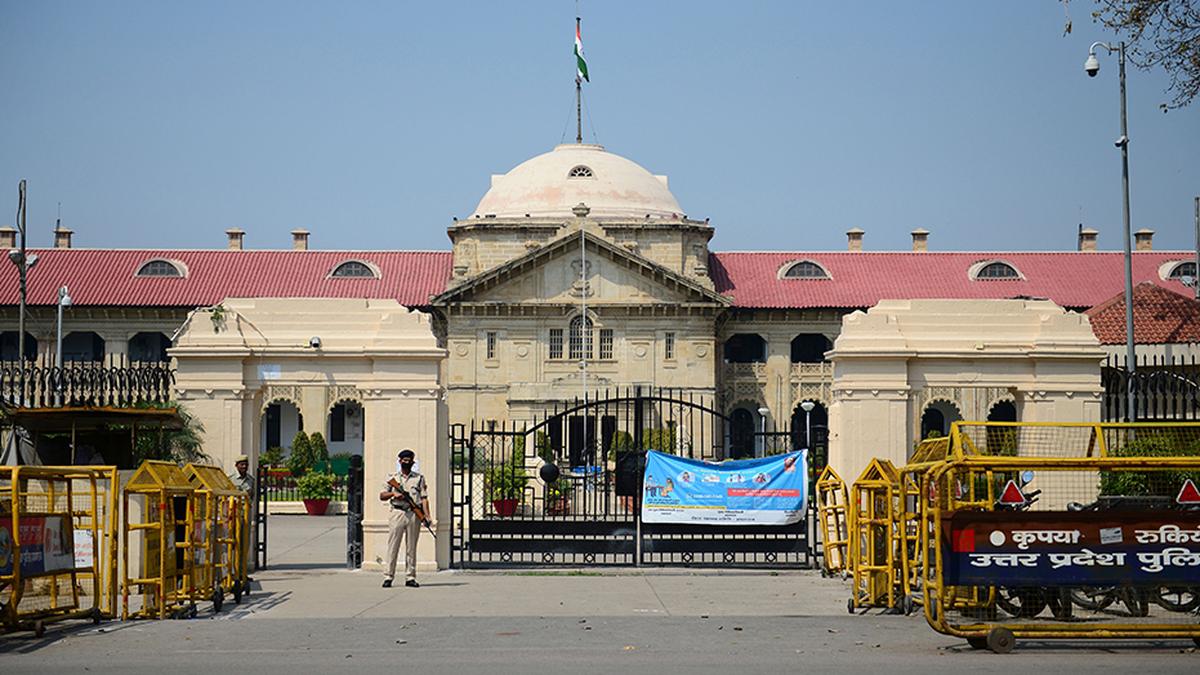The Allahabad High Court’s directive to the CBI and the Ministry of Home Affairs to investigate the death of an Indian woman in the United States highlights a crucial aspect of international justice and the responsibility of the Indian government in protecting its citizens abroad. This case, stemming from allegations of dowry death and suspicious circumstances surrounding the deceased’s demise in Seattle, necessitates a thorough investigation to ensure justice is served and the rights of the victim’s family are upheld.
Navigating Legal Jurisdiction in Cross-Border Deaths
The case hinges on the complexities of legal jurisdiction when a death occurs in a foreign country. While India’s Code of Criminal Procedure (CrPC) empowers the CBI to investigate offenses committed outside India under Section 188, the practical implementation of this provision can be riddled with bureaucratic hurdles. The court’s sharp criticism of the CBI and the Department of Personnel and Training (DoPT) for shirking their responsibilities underscores the need for greater accountability in such cross-border cases. The delay and bureaucratic red tape experienced by the victim’s mother reflect a broader issue of navigating legal procedures across national borders, especially when dealing with sensitive issues like alleged dowry deaths.
The Crucial Role of the CBI
The CBI, as the premier investigative agency in India, plays a pivotal role in ensuring justice for Indian citizens involved in incidents abroad. The agency’s mandate extends beyond national borders, making it responsible for conducting investigations when Indian nationals are involved in crimes or suspicious deaths in foreign countries. The Allahabad High Court’s directive to the CBI is significant because it places the agency’s responsibility for investigating this case squarely on its shoulders. The court’s decision emphasizes the need for the CBI to proactively address cross-border cases, especially those involving serious allegations like dowry death.
Challenges and Concerns
The challenges in conducting cross-border investigations are multifaceted. They involve navigating legal frameworks in both countries, obtaining evidence, ensuring proper communication between authorities, and potentially dealing with language barriers and cultural differences. Additionally, ensuring the cooperation of the authorities in the foreign country is paramount. In this particular case, the allegations of dowry death further complicate the investigation, demanding a comprehensive examination of the circumstances leading to the woman’s death and a thorough assessment of the potential involvement of her husband.
Addressing the Concerns of Dowry Death
Dowry deaths remain a grave societal problem in India, and the allegations of dowry-related abuse in this case require a focused and sensitive approach. The case highlights the tragic reality that even in foreign countries, women from India may face the dangers of dowry-related violence and the pervasive patriarchal practices that often accompany such crimes. The investigation needs to delve into the history of the victim’s marriage, the circumstances of her life in the United States, and potential financial pressures or disputes related to dowry that might have contributed to her death.
Implications for Protecting Indian Women Abroad
The case underscores the need for strong legal mechanisms to protect Indian women abroad, particularly in cases involving dowry deaths or other forms of domestic violence. India’s diplomatic missions and consulates in other countries need to be adequately equipped and empowered to offer effective assistance and support to Indian citizens facing such situations. They should play an active role in advocating for the victim’s family, facilitating communication with local authorities, and ensuring that investigations into dowry death cases are conducted promptly and thoroughly.
The Importance of Transnational Justice
The Allahabad High Court’s decision to involve the CBI in this case signifies the significance of transnational justice in addressing international crimes. The court’s stance recognizes the responsibility of the Indian government to protect its citizens abroad and to hold perpetrators accountable, regardless of geographical location. The case sets an important precedent by establishing the judiciary’s willingness to actively intervene in matters of cross-border justice, especially when they involve vulnerable populations and grave allegations of human rights violations.
Lessons Learned
The case presents valuable lessons for strengthening legal frameworks and investigative procedures for dealing with crimes committed against Indian citizens abroad. These lessons encompass:
- Empowering the CBI: The agency needs greater resources, streamlined procedures, and robust communication channels to effectively handle cross-border investigations, ensuring that it is adequately equipped to deal with complex international cases.
- Enhanced International Cooperation: Strong bilateral agreements and collaborations between India and other nations are essential to facilitate seamless information exchange, joint investigations, and swift actions in cases involving Indian nationals.
- Awareness and Outreach: Initiatives are needed to raise awareness among Indian citizens abroad regarding their legal rights and the mechanisms available to them when encountering problems or facing criminal situations in host countries.
- Investing in Resources: Increased budgetary allocation for law enforcement, international collaborations, and victim support services is crucial to bolster the government’s capacity to protect its citizens abroad and respond effectively to situations like the one in the Allahabad High Court case.
Take Away Points
The Allahabad High Court’s decision to order a CBI investigation into the death of an Indian woman in the United States underscores the complex challenges of navigating legal frameworks across borders and the responsibility of the Indian government to ensure the safety and justice for its citizens abroad.
- The case emphasizes the need for stronger legal mechanisms to protect Indian women from dowry-related violence and other forms of abuse, even in foreign countries.
- It highlights the importance of enhanced cooperation between Indian authorities and foreign counterparts to facilitate investigations and ensure swift action in such cases.
- This case calls for improved communication, increased resources, and enhanced training for Indian authorities involved in handling cross-border investigations, especially in cases involving sensitive matters like dowry death.
- By raising awareness about these issues, promoting collaboration between nations, and strengthening legal frameworks, the Indian government can effectively address transnational crimes and protect its citizens in a globalized world.




